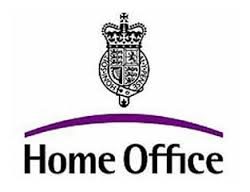By James Simons-
A Home Office policy to deport rough sleepers from countries in the European Economic Area (EEA) has been ruled unlawful by the high court.
The ruling follows a challenge brought on behalf of two Polish men and a Latvian.
The court ruled that the Home Office’s position was contrary to EU law. It also said the policy was discriminatory and amounted to an unlawful systematic verification of the EEA nationals’ rights to reside.
Hundreds of EEA nationals detained under the policy can now sue for compensation for unlawful detention.
Since 2016 the Home Office administrative policy has branded rough sleeping as an abuse of EU free movement rights in its administrative removal policy.
Three EEA nationals – Gunars Gureckis from Latvia, and Mariusz Perliński and Mariusz Cielecki from Poland – faced removal action because they were sleeping rough.
The legal challenge was brought by the Public Interest Law Unit (PILU) and North East London Migrant Action (NELMA). The Aire Centre, a charity which promotes European law rights, provided evidence. The ruling has serious implications for others who have been removed from the UK and face a 12-month re-entry ban. They can sue for compensation and have that ban lifted and be readmitted to the UK.
The Home Office launched Operations Adoze and Gopik to remove rough sleepers from the UK even if they were working or had permanent right of residence. EEA nationals rough sleeping have always been presumed to be abusing their rights of residence by The Home Office.
It is also no surprise that the group was targeted by immigration enforcement teams, often assisted by the police and local authorities.
A NELMA spokesman said in a press statement: “In reality, many homeless people targeted by the Home Office have fallen on hard times and are working but unable to afford accommodation.
“The numbers of European nationals sleeping rough have been steadily increasing since 2010. But rather than making substantial or systematic attempts to provide solutions to homelessness through accommodation and employment support, local and national authorities have opted to add enforcement measures to austerity policies. We hope this decision will put an end to a social policy which used imprisonment and deportation as solutions to eradicate homelessness.”
Zubier Yazdani of Deighton Pierce Glynn solicitors, who represented the Aire centre, said: “The court has upheld the well-established definition of an abuse of rights under EU law and sent a strong message to the Home Office that its removal of rough-sleeping EU citizens is totally unlawful and discriminatory. This decision comes as a significant defeat for the Home Office in their desire to create a ‘hostile environment’ for foreign nationals.”
DELIGHTED
The Public Interest Law Unit welcomed the judgment in a statement which read: “We are delighted that the court has been willing to protect the rights of a vulnerable group of workers who have been stigmatized both by the authorities and by sections of the media.
“Experience shows that if we stand by and allow a marginalized group to be victimised others can expect the same treatment later. Homelessness cannot humanely be dealt with by detaining or forcibly removing homeless people. This practice has been found unlawful and must immediately cease.”
A Home Office spokesperson said: “We are disappointed by today’s judgment. However, we respect the court’s findings and will not be appealing. We will consider carefully what steps are necessary to ensure we reflect the judgment in future enforcement.”
The European commission has said EU member states have no right to deport EU citizens for being homeless and said EU citizens had a right to live in other EU countries “irrespective of whether they are homeless or not”.




